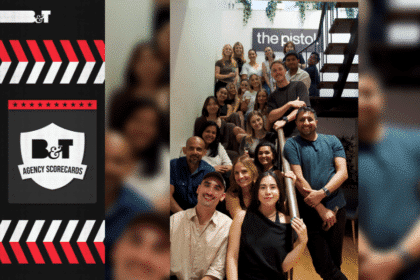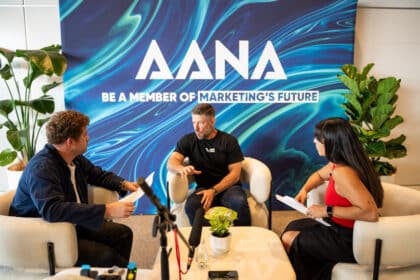In an era of radical transparency and instant digital accountability, companies that still silo brand and reputation are setting themselves up for failure, writes Matt Thomas, founder of Stake, The Reputation Company. Worse still, the conversation isn’t new, the solution isn’t novel—it’s simply long overdue.
For years businesses have treated brand and reputation separately, one the domain of marketing and the other owned by PR and corporate affairs. Brand and reputation aren’t two separate disciplines—they’re two sides of the same coin. Studies have demonstrated that a strong corporate brand enhances reputation, and a solid reputation, in turn, strengthens brand value and is closely linked to financial strength, social responsibility, and stakeholder alignment.
Yet many companies still fail to connect the dots. Just look at Tesla.
Arguably one of the most powerful brands in the world, Tesla’s corporate reputation is plagued by controversies over leadership behaviour, worker treatment, and safety concerns. The result? The company’s brand strength hasn’t shielded it from reputational damage. Investors have expressed concerns, regulatory scrutiny has intensified, and the brand’s premium appeal has eroded. Tesla proves that brand power alone isn’t enough, reputation must be actively managed alongside it.
Why do companies still fall into this trap? Because brand is often seen as proactive—crafted through logos, campaigns, and storytelling—while reputation is reactive, managed through crisis responses and stakeholder engagement. But in today’s world, customers, employees, and investors don’t make that distinction – neither should organisations.
Reputation isn’t just a defensive play, it’s a core brand-building strategy, often shaped in real-time through digital interactions. Every marketing message, customer review, executive decision, and social media post contributes to brand perception. Reputation is no longer a side concern; it’s the brand itself.
Take Boeing. Once revered as the gold standard in aviation, Boeing’s reputation collapsed in the wake of the 737 MAX crisis. No amount of advertising or marketing could undo the reputational damage caused by safety failures, whistle-blower allegations, and a perceived lack of transparency. The result? Customers (airlines) lost confidence, regulators imposed harsher scrutiny, and the brand’s trust deficit widened.
Compare this with Bendigo Bank, one of Australia’s most trusted brands. While the Big Four banks continually battle reputational crises—from the Banking Royal Commission to customer scandals—Bendigo Bank has consistently positioned itself as a purpose-driven financial institution, focused on community engagement and ethical banking.
Its reputation-first approach has allowed it to punch above its weight in customer trust rankings.
The Australian social enterprise, Thankyou, built its entire business model around corporate reputation. Unlike brands that simply attach a CSR campaign to their marketing, Thankyou embedded social responsibility into its DNA, donating 100% of profits to end global poverty. In so doing, the brand has built a fiercely loyal customer base that believes what it stands for not just for what it sells.
Companies whose social initiatives “fit” with stakeholder expectations see higher reputational benefits than those with generic CSR efforts. The lesson? Brand strength without reputation management is a house of cards.
WHAT THIS MEANS FOR MODERN CORPORATE STRATEGY
In today’s modern corporate landscape, brand and reputation must be managed as one. The CMO and corporate affairs leader should be in lockstep—if not the same person.
Consider Qantas, once one of Australia’s most beloved brands. In recent years, Qantas has faced a dramatic reputational fall fuelled by service complaints, workforce controversies, and a legal battle over job outsourcing. The airline’s brand, built on safety and reliability, has been damaged by customer frustration and public backlash. Even the strongest brand equity can erode when corporate reputation is mismanaged.
Research backs this up, clearly indicating that corporate brands must authentically express their identity and values. Consumers see through performative branding and spin, and they demand that brands ‘walk the walk they talk’. Qantas’ failure to align external messaging with internal realities makes the brand a case study in how reputation erosion can undo decades of brand strength.
In today’s world, customers, employees, and stakeholders drive brand perception. It’s not just what a company says about itself, it is what people hear, experience, and share, that matters. Brands must be authentic in the minds of their customers clearly demonstrating that their internal cultural is aligned with their external reputation to maintain credibility.
Corporate culture is brand strategy. Bunnings, for example, has maintained its status as one of Australia’s most trusted retailers not just because of its marketing, but because of its strong customer service culture and community engagement. This is supported by studies that argue corporate brand identity is co-created by both internal employees and external stakeholders.
The era of viewing brand as a marketing exercise and reputation as a PR function is over. The companies that merge the two will thrive. Those that don’t? They’ll find out the hard way that reputation isn’t just managed—it’s built, lived, and ultimately, owned by its publics.
The research is clear. The urgency is real. The time to act? Yesterday.








